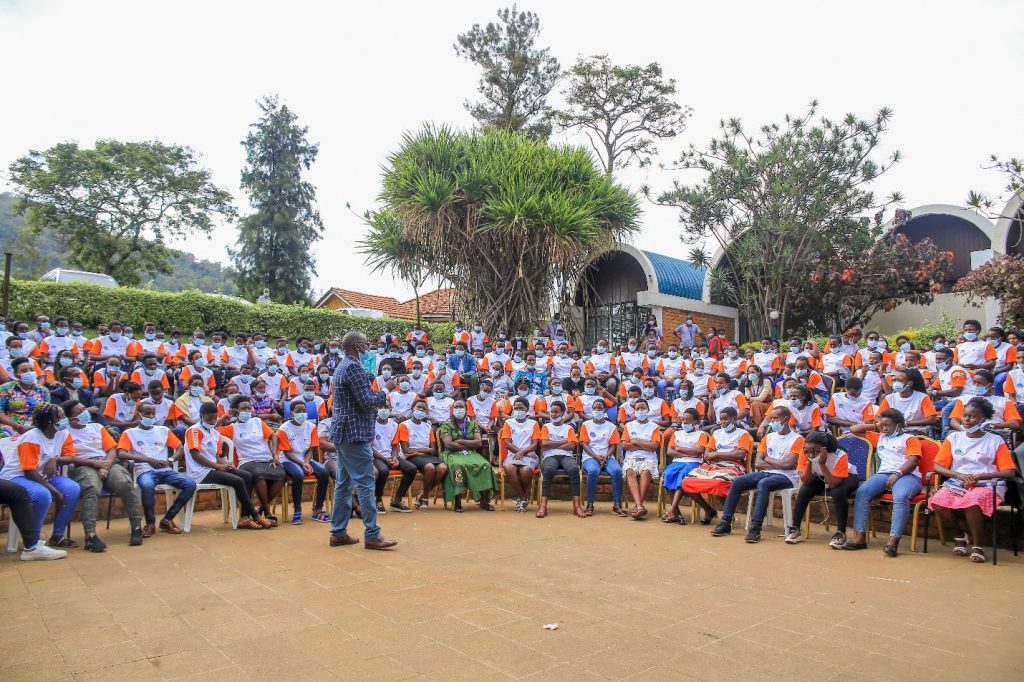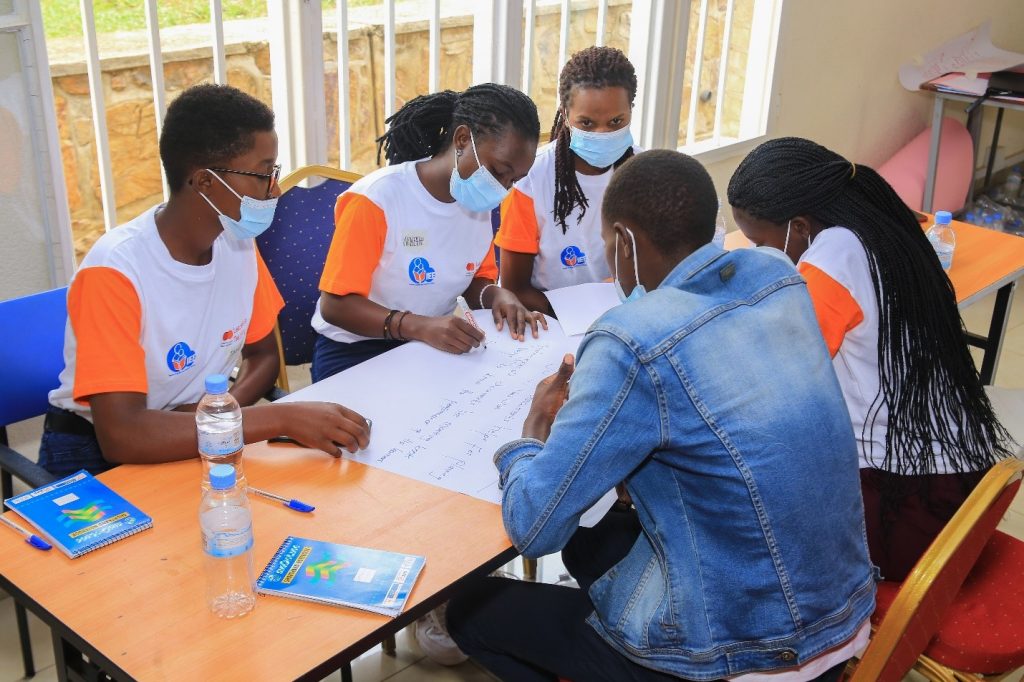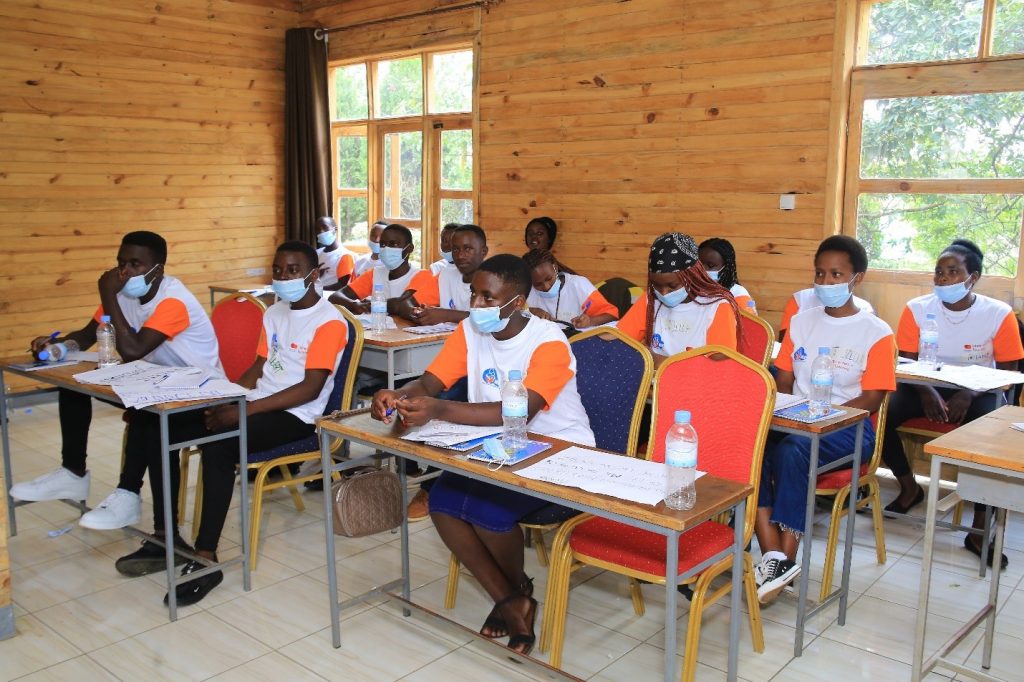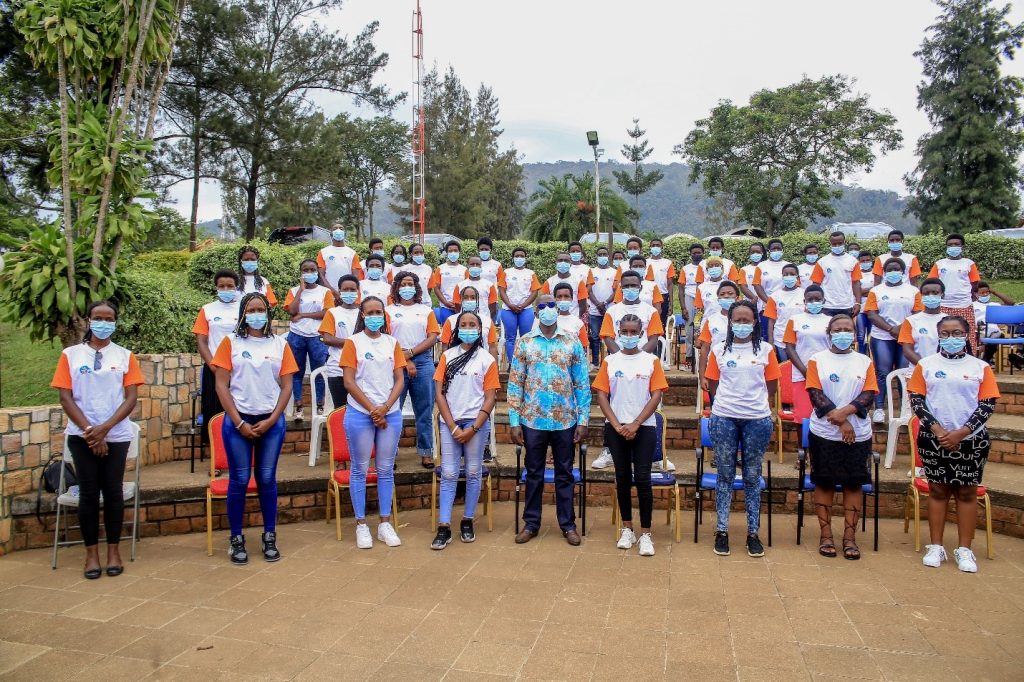Teaching Assistants from all the 30 districts of Rwanda, concluded a four-day pre-deployment training, conducted by Inspire, Educate and Empower Rwanda (IEE), at the Rwanda Institute of Cooperatives, Entrepreneurship, and Microfinance (RICEM) in Kigali. The 310 Teaching Assistants (TAs) are being prepared to be deployed in 116 schools countrywide, under the guidance of the Teaching Assistantship Mentors (TAMs) to support teaching and learning. 70% of the Teaching Assistants did sciences at high school level and 30 did humanities, while 70% of each component are females.

The training aimed at providing the Teaching Assistants with information about IEE’s mission, key partners, main areas of intervention, specifically the Teaching Assistantship Project II and different areas in which the TAs will intervene. The four-day sessions also enabled Teaching Assistants to acquire knowledge about the English language for teaching, lesson planning and teaching methodology, study strategies and personal development, gender responsive pedagogy, special needs and inclusive Education, professional ethics and qualities of a good teacher, among other aspects.

This exercise is under the Teaching Assistantships Project (TAP II), a five-year project funded by the Mastercard Foundation and directly implemented by IEE in collaboration with Rwanda Basic Education Board (REB). TAP II focuses on supporting Rwanda with skill-nurturing for passionate young people, with an interest in education, attracting them to join the teaching profession. It is intended to institutionalize teaching assistantships at national and community level for important transformational systems change in education. Esther Horusenga, one of the trainees, is from Gakenke District in Rukura sector. She completed her senior six level at College Methodiste de Rushashi in the combination of Literature, Kiswahili and Kinyarwanda (LKK). After the four-day training, she hopes to put in practice skills acquired while teaching, which include making good lesson plans and applying learner centered teaching methodologies.

“This training was very useful to me because I realized how I still need special skills in teaching and understanding better who a teacher is and what tools he/she requires to teach in an easy and student friendly manner. More so, a teacher is expected to be a role model in community so that people respect and trust him/her, especially stakeholders in education and parents”, said Horusenga.
According to David Hategekimana, another trained Teaching Assistant from Huye district, Mukura sector, the four-day training encourage him to build confidence while teaching, skills in time management and teaching methodology. Hategekimana completed senior six in the option of Mathematics, Economics and Geography (MEG) at Groupe Scolaire Nkubi. He said “I strive to pass on knowledge through teaching and I was happy to learn the method of Leaning through Play, which I intend to use during my teaching assistantship. I liked the way it promotes interaction during class time”, said HategekimanaBeside the training sessions, the Teaching Assistants were addressed by the Senior Officials at IEE. Teaching Assistants were urged by the IEE Country Director Emmanuel Murenzi, to be passionate about the teaching profession and build good relationship with Teaching Assistantship Mentors and staff in their respective schools. Murenzi said that their readiness for the teaching profession requires them to be role models through good behavior and being well organized.

The training of 310 Teaching Assistants is among other expected major activities of the Teaching Assistantships Project Phase II’s capacity building programme for TAs so that they gain knowledge, attitudes, and behavior for adaptability to challenging situations, with clear understanding and interest in education. TAP II will be implemented in collaboration with stakeholders including Rwanda Basic Education Board and District education stakeholders.
Reactions to this content may be addressed to: ieerwanda.directorate.org@gmail.com
